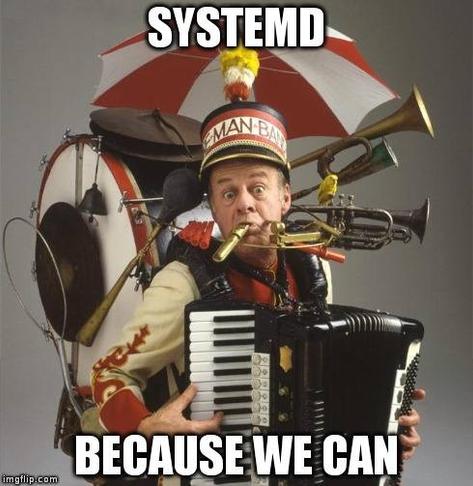Hey Fedi! If you use Linux and use an init system / service manager other than systemd, what do you like about what you are using? Everybody asks how these compare to systemd, so I wanted to see what people thought of them stand-alone.
Edit: Please do not turn this into a bashing systemd thread. systemd is fine, but I want to see why other setups are *also* fine.



